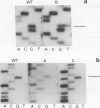Abstract
Approximately 30-50% of cases of ovarian adenocarcinoma harbour mutations in the p53 tumour-suppressor gene associated with elevated levels of the protein detected by immunohistochemical staining. To investigate any relation between the presence of mutant p53 and clinicopathological features of disease, we examined a series of 50 cases of epithelial ovarian adenocarcinoma for expression of p53 by immunohistological staining on fixed, paraffin-embedded tissue sections using the polyclonal antibody CM1, and by direct nucleotide sequencing of polymerase chain reaction-amplified DNA from selected cases. Of the 50 cases examined, 28 (56%) were p53 positive and there was no significant correlation between p53 status and differentiation stage, clinical (FIGO) stage, multidrug resistance (mdr-1 P-glycoprotein) expression or response to treatment. However, we observed a statistically significant difference between the high prevalence of p53-positive serous tumours (18 out of 23) and the lower prevalence of p53-positive cases in mucinous tumours (3 of 12) suggesting that factors related to disease aetiology, associated with these histological subtypes, may determine the prevalence of functional inactivation of the p53 tumour-suppressor gene in ovarian adenocarcinoma.
Full text
PDF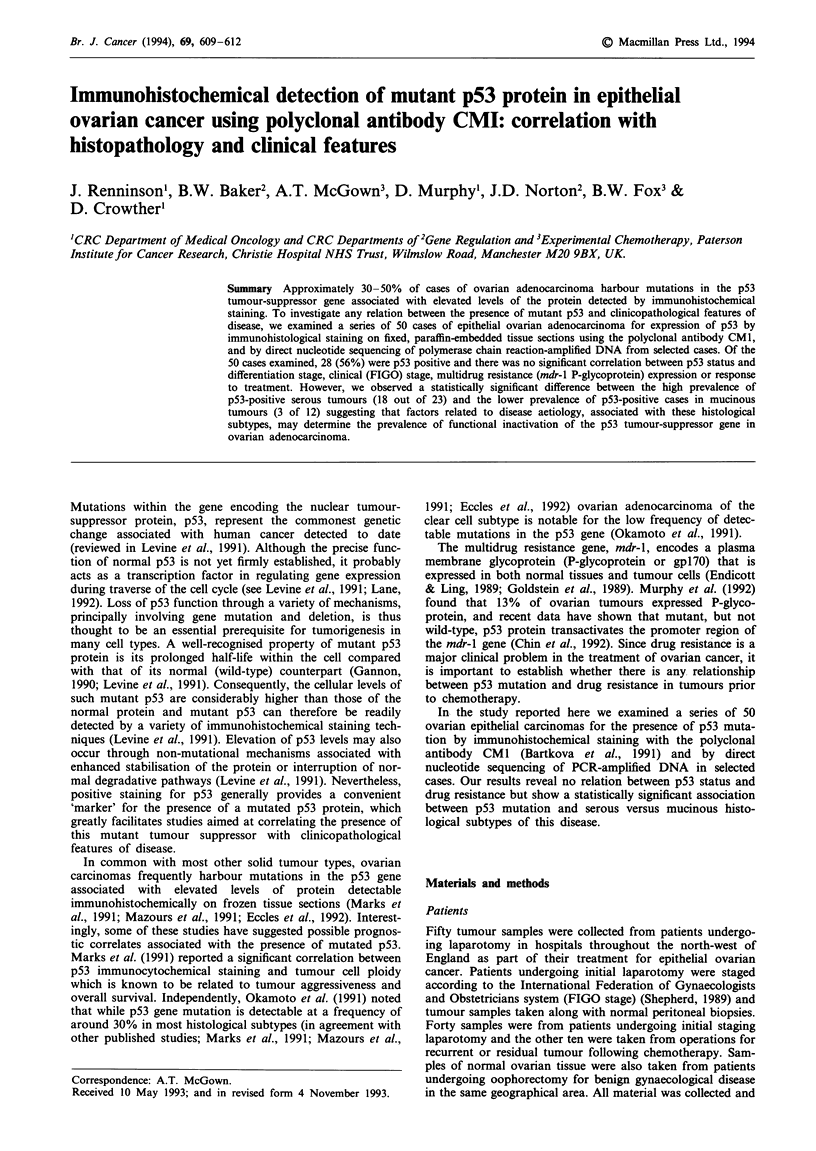
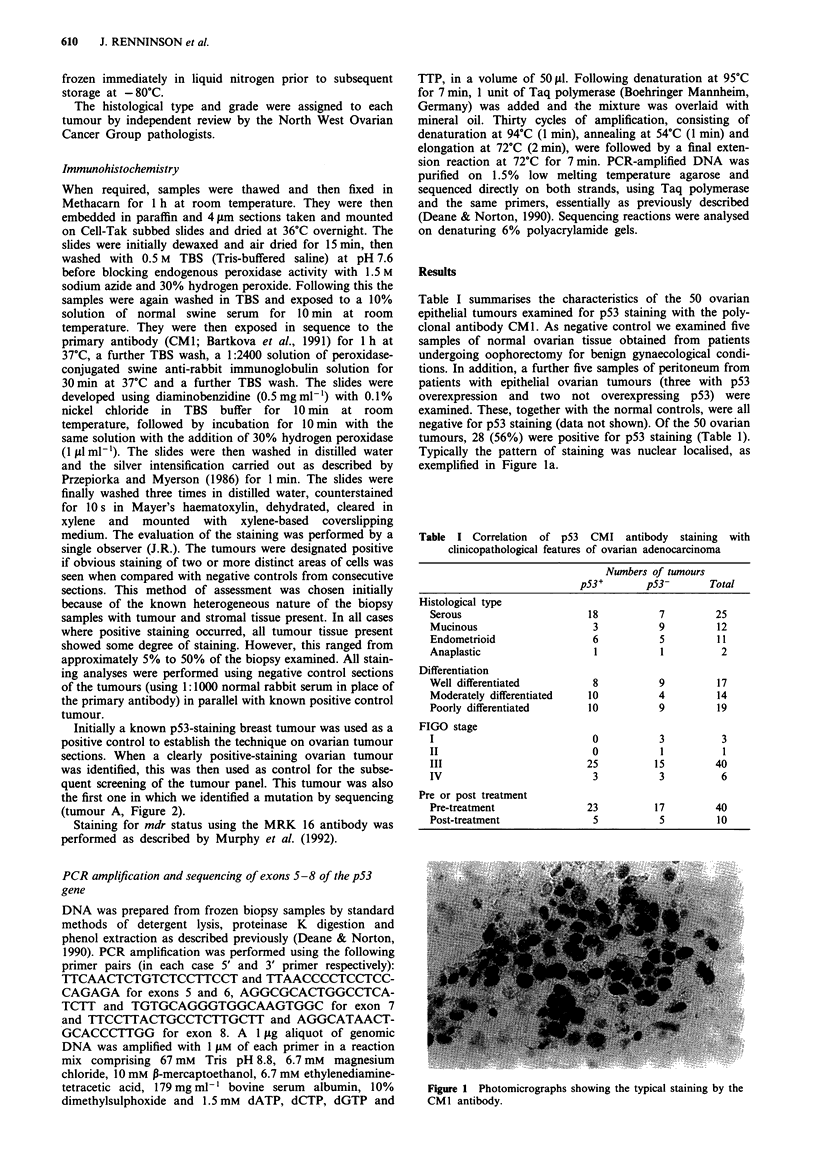
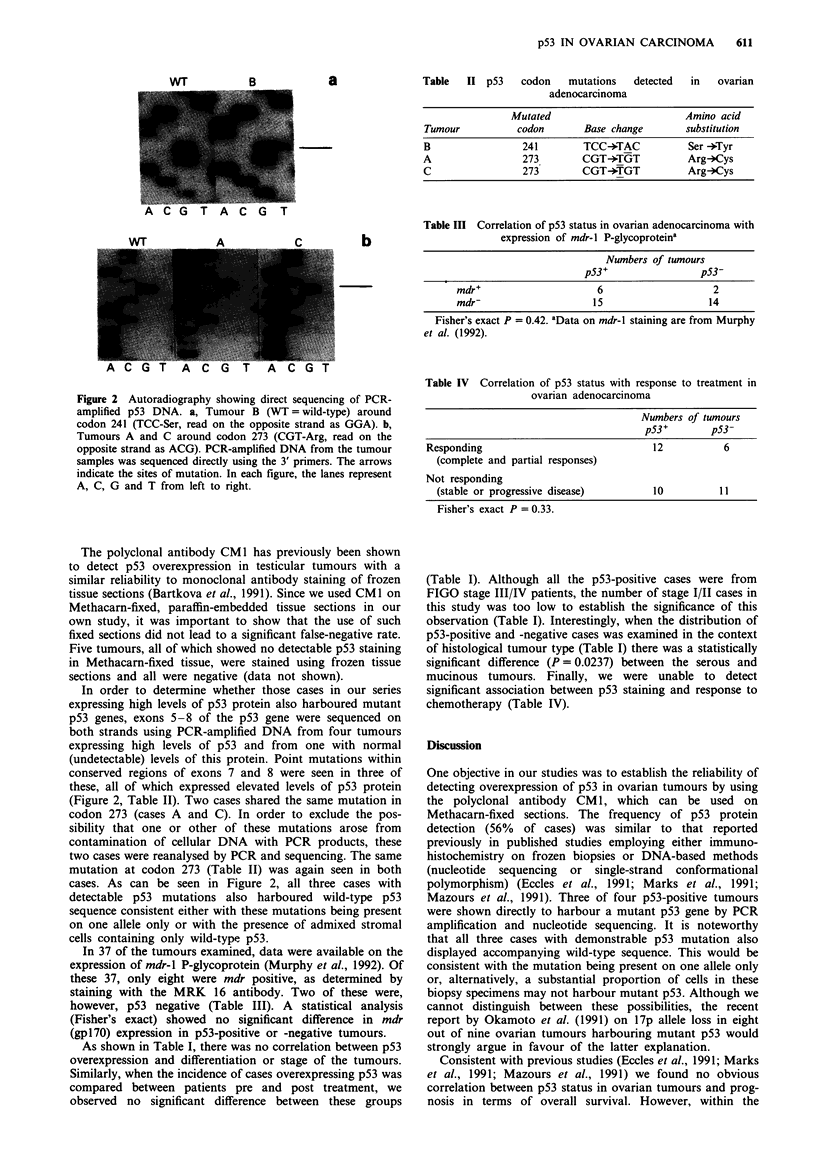
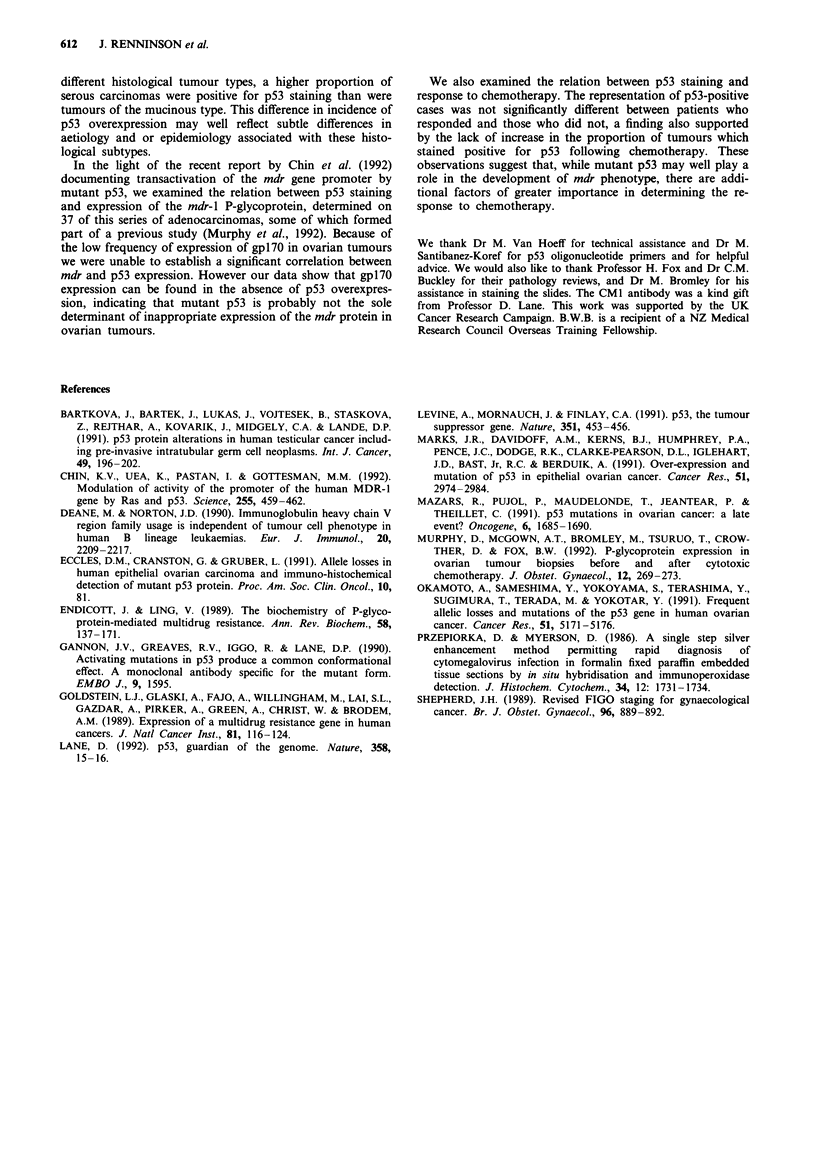
Images in this article
Selected References
These references are in PubMed. This may not be the complete list of references from this article.
- Bártková J., Bártek J., Lukás J., Vojtesek B., Stasková Z., Rejthar A., Kovarík J., Midgley C. A., Lane D. P. p53 protein alterations in human testicular cancer including pre-invasive intratubular germ-cell neoplasia. Int J Cancer. 1991 Sep 9;49(2):196–202. doi: 10.1002/ijc.2910490209. [DOI] [PubMed] [Google Scholar]
- Chin K. V., Ueda K., Pastan I., Gottesman M. M. Modulation of activity of the promoter of the human MDR1 gene by Ras and p53. Science. 1992 Jan 24;255(5043):459–462. doi: 10.1126/science.1346476. [DOI] [PubMed] [Google Scholar]
- Deane M., Norton J. D. Immunoglobulin heavy chain variable region family usage is independent of tumor cell phenotype in human B lineage leukemias. Eur J Immunol. 1990 Oct;20(10):2209–2217. doi: 10.1002/eji.1830201009. [DOI] [PubMed] [Google Scholar]
- Endicott J. A., Ling V. The biochemistry of P-glycoprotein-mediated multidrug resistance. Annu Rev Biochem. 1989;58:137–171. doi: 10.1146/annurev.bi.58.070189.001033. [DOI] [PubMed] [Google Scholar]
- Gannon J. V., Greaves R., Iggo R., Lane D. P. Activating mutations in p53 produce a common conformational effect. A monoclonal antibody specific for the mutant form. EMBO J. 1990 May;9(5):1595–1602. doi: 10.1002/j.1460-2075.1990.tb08279.x. [DOI] [PMC free article] [PubMed] [Google Scholar]
- Goldstein L. J., Galski H., Fojo A., Willingham M., Lai S. L., Gazdar A., Pirker R., Green A., Crist W., Brodeur G. M. Expression of a multidrug resistance gene in human cancers. J Natl Cancer Inst. 1989 Jan 18;81(2):116–124. doi: 10.1093/jnci/81.2.116. [DOI] [PubMed] [Google Scholar]
- Lane D. P. Cancer. p53, guardian of the genome. Nature. 1992 Jul 2;358(6381):15–16. doi: 10.1038/358015a0. [DOI] [PubMed] [Google Scholar]
- Levine A. J., Momand J., Finlay C. A. The p53 tumour suppressor gene. Nature. 1991 Jun 6;351(6326):453–456. doi: 10.1038/351453a0. [DOI] [PubMed] [Google Scholar]
- Marks J. R., Davidoff A. M., Kerns B. J., Humphrey P. A., Pence J. C., Dodge R. K., Clarke-Pearson D. L., Iglehart J. D., Bast R. C., Jr, Berchuck A. Overexpression and mutation of p53 in epithelial ovarian cancer. Cancer Res. 1991 Jun 1;51(11):2979–2984. [PubMed] [Google Scholar]
- Mazars R., Pujol P., Maudelonde T., Jeanteur P., Theillet C. p53 mutations in ovarian cancer: a late event? Oncogene. 1991 Sep;6(9):1685–1690. [PubMed] [Google Scholar]
- Okamoto A., Sameshima Y., Yokoyama S., Terashima Y., Sugimura T., Terada M., Yokota J. Frequent allelic losses and mutations of the p53 gene in human ovarian cancer. Cancer Res. 1991 Oct 1;51(19):5171–5176. [PubMed] [Google Scholar]
- Przepiorka D., Myerson D. A single-step silver enhancement method permitting rapid diagnosis of cytomegalovirus infection in formalin-fixed, paraffin-embedded tissue sections by in situ hybridization and immunoperoxidase detection. J Histochem Cytochem. 1986 Dec;34(12):1731–1734. doi: 10.1177/34.12.3023477. [DOI] [PubMed] [Google Scholar]
- Shepherd J. H. Revised FIGO staging for gynaecological cancer. Br J Obstet Gynaecol. 1989 Aug;96(8):889–892. doi: 10.1111/j.1471-0528.1989.tb03341.x. [DOI] [PubMed] [Google Scholar]




